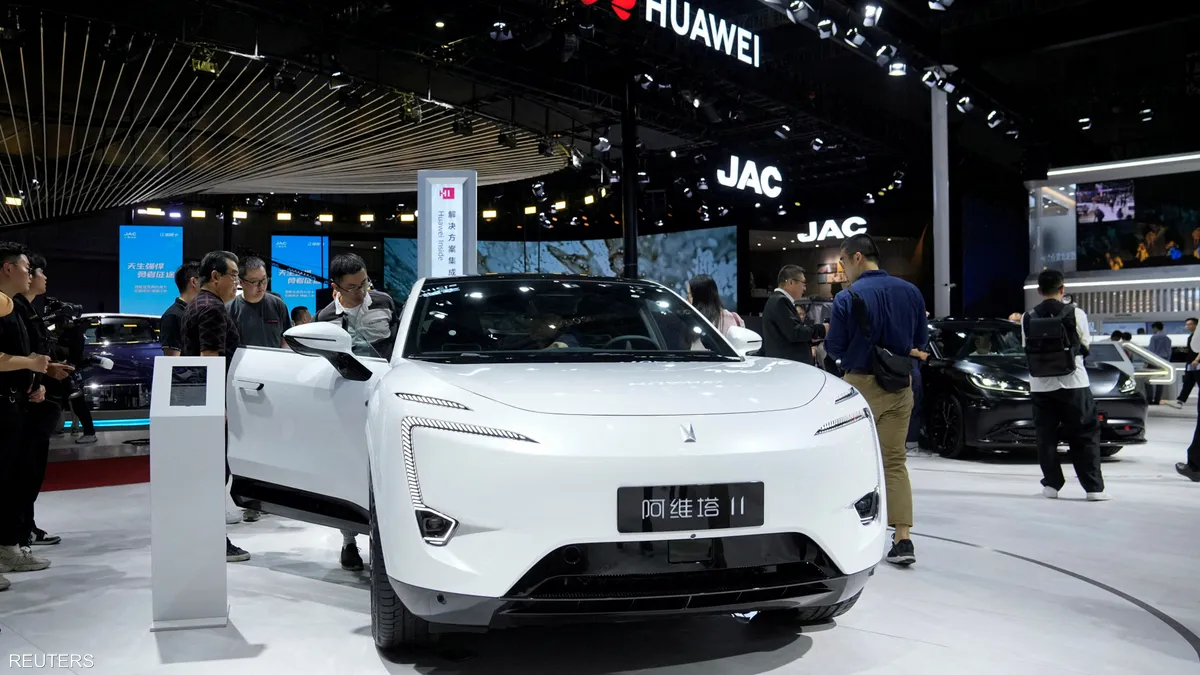
New tariffs imposed by the European Union have sharply curtailed the influx of Chinese-made electric vehicles in July. This protectionist measure aims to shield domestic automakers from the competitive pressure exerted by lower-priced Chinese models.
Chinese auto giants like BYD and
SAIC Motor's MG witnessed a staggering 45% decline in new electric vehicle
registrations in the EU last month compared to June, according to Dataforce
research. While this data encompasses 16 member states, it underscores a
significant downturn. The precipitous drop may be partially attributed to
Chinese manufacturers rushing to clear inventory before the July 5th tariff
implementation.
Independent auto analyst Matthias
Schmidt suggests that a stock clearance push in June likely contributed to the
subsequent decline.
The European Union has imposed
temporary tariffs of up to 48% on Chinese electric vehicle imports to safeguard
its domestic automotive industry. Beijing's heavy subsidies for battery
technology have given Chinese manufacturers a significant competitive edge.
Despite the rising trade tensions and China's threats of retaliation, Chinese
electric vehicle sales have only dipped 36% in 16 key European countries
tracked by Dataforce. Companies like BMW, Stellantis, and Tesla also import
electric vehicle parts made in China that are subject to the additional tariffs
imposed by the EU.
Schmidt noted that the June surge
was less pronounced for Western companies, which were more cautious in managing
their inventories. There is little in the July figures to suggest that Chinese
brands have scaled back their ambitions to expand in Europe, the world's
third-largest regional car market after Asia and the United States.
Electric vehicles, while still a
minority in the European market, are poised to become the dominant force as the
phase-out of combustion engines accelerates.
Companies like BYD continue to
thrive, with sales tripling year-over-year. In contrast, MG, under the SAIC
umbrella, experienced a 20% downturn while Polestar sales fell by 42 percent.
BYD, China's best-selling car
brand, continues its expansion in Europe. The company's high-profile
sponsorship of UEFA Euro 2024 has catapulted its brand to a global audience of
5 billion viewers.
Undeterred by new EU tariffs, BYD
has pressed forward, establishing operations in Poland and committing to a new
Hungarian factory. This strategic expansion underscores the company's
confidence in overcoming trade barriers.
The new tariffs came after a
European Union investigation found that Beijing was subsidizing its electric
car industry to an extent that was causing economic harm to EU car makers. MG
is subject to an additional duty of 37.6 percent above the current rate of 10
percent, while Volvo-owned Geely Automobile Holdings and BYD will pay 19.9
percent and 17.4 percent higher than before, respectively. These taxes will
become permanent in November, unless an agreement is reached between Brussels
and Beijing.
The global electric vehicle
market is experiencing a slowdown, intensifying competition. As the EU
transitions to electric mobility, policymakers grapple with balancing
industrial protection with environmental goals by 2035.
Dataforce's July data,
encompassing Germany, France, and Italy, reveals a decline in Chinese electric
vehicle market share. While German registrations dropped from 13% to 8%, the
French market saw a more modest decline from 8% to 5%. Notably, Chinese brands
have gained traction in the UK market, despite the country's EU exit.
European automakers, including
Volkswagen and Stellantis, are forging strategic alliances with Chinese
counterparts to share costs and enhance competitiveness in the electric vehicle
market. Simultaneously, Chinese automakers are accelerating their European
manufacturing footprint.
Matthias Schmidt emphasizes the importance of persistence for Chinese brands, stating, "BYD's ability to weather the tariffs demonstrates their determination. To succeed in Europe, they must consistently engage with the market.”





